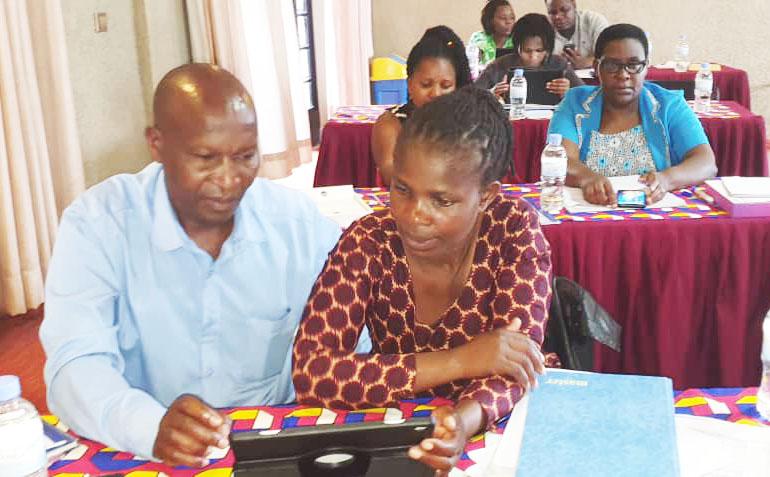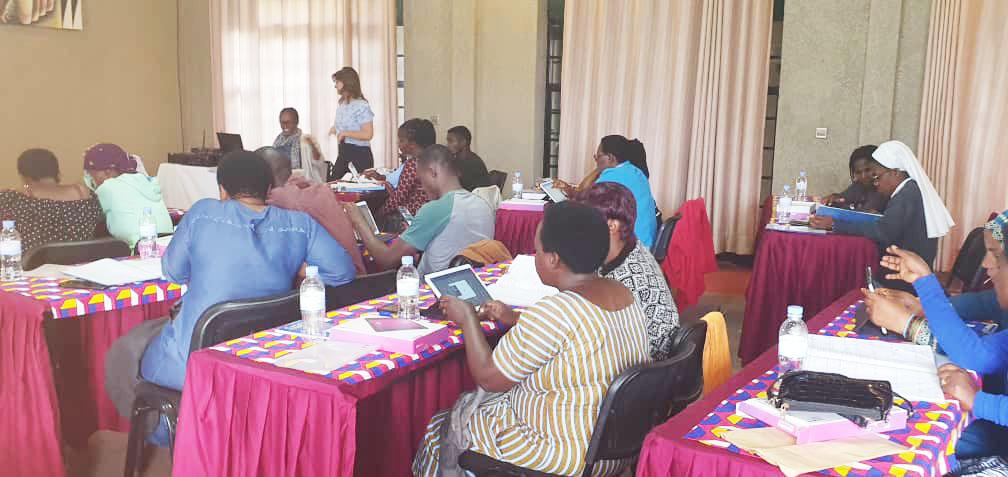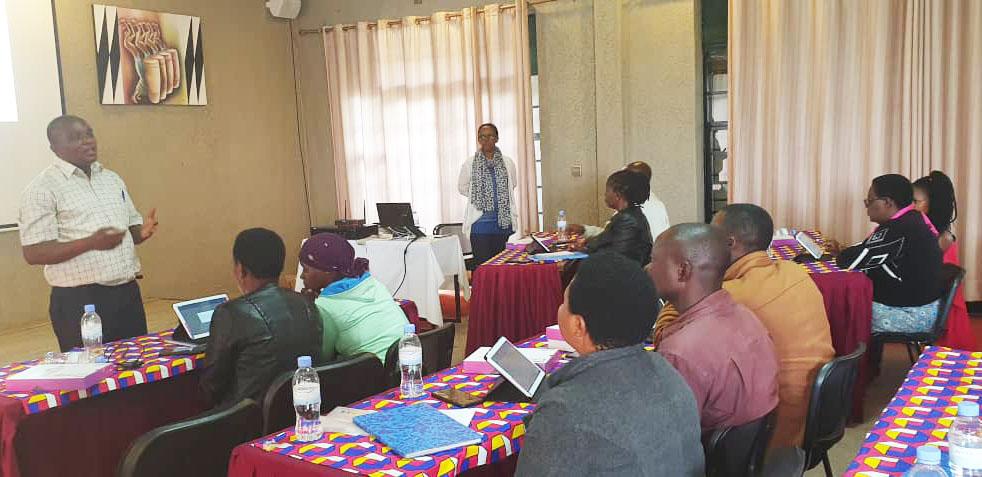In Rwanda, the use of Ultrasound Digital tool enables changes
Enabel’s Health intervention, in partnership with Rwanda’s
Ministry of Health, is providing ultrasound machines to Health Centers as well
as tablets for timely and digital reporting.
Since July 2021, Enabel provided 83 ultrasound machines to
Health Centers in two of the districts of intervention, namely Karongi and
Rusizi in Rwanda’s Western Province, and trained midwives on the use of the ultrasounds.
The move aims to support Rwanda’s Ministry of Health to adopt
the World Health Organization’s recommendation for all
pregnant women to receive one ultrasound scan during the Antenatal Care Service
and before 24 weeks to estimate gestational age, improve early detection of
anomalies and improve pregnancy experience.
Training sessions on the use of ultrasound machines
were organized in collaboration with Obstetric / Gynecologists and
Sonographers/Medical imaging officers from referral hospitals and continue
face-to-face support to the midwives to improve their skills at health center.
Providing
Ultrasound services at the Health Center is
an innovative approach in Rwanda. As such, and as expected, some teething
problems have been reported. These include failure to collect timely and
accurate information on the ultrasound service to the pregnant women.
This, in
turn, has led to incomplete and/or delayed information on the ultrasound
services. The key reason for this is that the routine health information system
does not collect specific information on ultrasound services.
It
is in this context that Enabel, through Barame project, designed, produced and
provided a user-friendly digital tool for Health Centre practitioners to
collect, analyze, report and visualize data generated during the ultrasound
scanning, through dashboard.
Indeed,
reliable data of the pregnant women is highly needed and can be remotely
monitored for evidence-based decision making.
Furthermore, this new strategy
itself should be evaluated to identify the usefulness, and potential weaknesses
and challenges that will require improvement before scaling up to more
districts and health centers.
Health
care providers from Karongi and Rusizi District Health Centers, ahve already been trained on
the digital tool. Such training sessions will be
provided to all Health Centers in all districts of intervention after having provided
them with ultrasound machines, thus equipping them with knowledge on the use of this new technology.
In total, 131 ultrasound machines are planned to be provided to 131
Health Centers from seven districts of Barame intervention. The same
Health Centers will be provided with tablets to use the ultrasound reporting
tool.
Laatste nieuws van dit project
Geen nieuws



